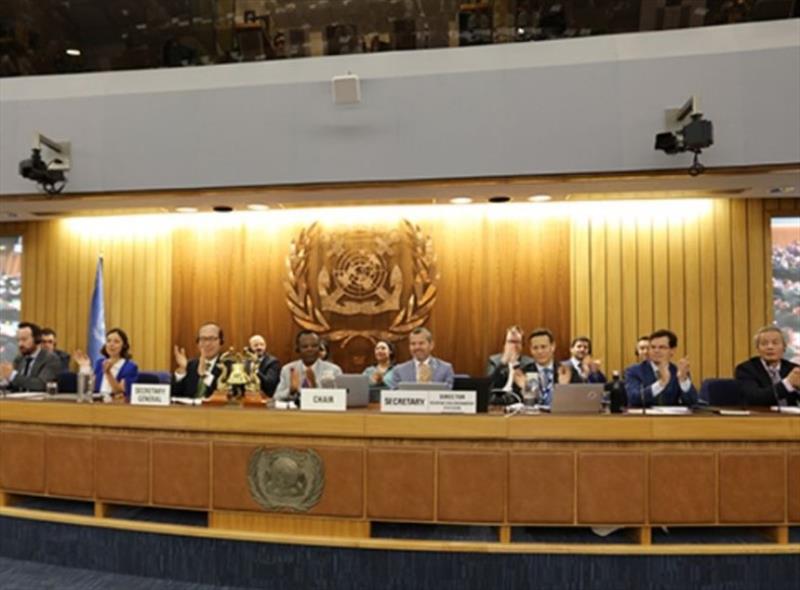
Addressing climate change fueling transition with AkzoNobel
by AkzoNobel 14 Sep 2023 09:34 PDT

Addressing climate change fueling transition with AkzoNobel © AkzoNobel
In July 2023, at MEPC 80, the IMO adopted the '2023 Strategy on the Reduction of GHG Emissions from Ships'. This strategy targets the adoption of near-zero GHG fuels by 2030.
A pivotal factor in this transition is choosing the right coating for fuel tanks—it ensures longevity and maintains the tank's optimal condition.
Shipping companies invest a significant amount of consideration into the choice of coating systems for their vessel's fuel tank interiors. A failure in this coating can halt vessel operations, leading to consequential financial impacts.
What solutions does AkzoNobel offer for alternative fuels?
Two critical factors come into play when dealing with alternative fuels: Such fuels can create aggressive environments in storage. This requires robust protective coating solutions for maintaining the integrity and longevity of fuel tanks.
With alternative fuels often having lower energy density and being more expensive than traditional fuels, it's essential to use specialized underwater hull coatings to maximize efficiency. These coatings optimize hydrodynamics, leading to reduced fuel consumption, counteracting the increased costs of alternative fuels.
AkzoNobel provides solutions for these challenges with coatings like the 'Intersleek® and Interline® series.
Interline® specifically designed to protect fuel tanks from aggressive environments caused by alternative fuels. Furthermore, AkzoNobel's Intersleek® 1100SR, an advanced underwater hull coating, incorporates patented Slime Release technology. This tackles micro fouling, maintains performance across docking cycles, reduces drag, improves fuel efficiency, and cuts CO2 emissions by up to 9%.
Strategies to mitigate marine fueling transition impacts
The International HullCare package by AkzoNobel aids operators in achieving significant CO2 emission and fuel cost reductions. It maintains smooth, clean hulls over a 10-year docking cycle, offering an advantage over typical five-year fouling control systems.
No matter if your goal is a 5-year, 7.5-year, or 10-year dry dock interval, International HullCare delivers.
AkzoNobel® Reliable Cargo Tank Coatings - Interline® Series
From fuel tanks to oil and chemical tankers, we understand the unique needs of each sector and the evolving challenges of specific market demands. We've crafted products tailored to these diverse requirements.
Our coatings are formulated for minimal absorption and retention, mitigating cargo contamination risks and unveiling new trade avenues.
Boasting a track record of over 2,000 tank lining applications and proven in-service performance, explore our globally acclaimed cargo tank coatings:
Interline® 704HS:
- Pure Epoxy
- A suitable coating system for biofuels
- Offers the same versatile cargo coverage as Interline 704
- Features a unique high solids formulation, thereby reducing the amount of product needed and lowering VOC emissions
- Adapts to global VOC regulations, providing an ideal solution for cases seeking to incorporate the technology of Pure Epoxy.
Interline® 344:
- Zinc Silicate
- A suitable coating system for methanol fuel
- Easily applied Zinc coating ensuring extended market performance and improved mud-cracking resistance
- Zinc coating for specific dedicated chemical such as methanol